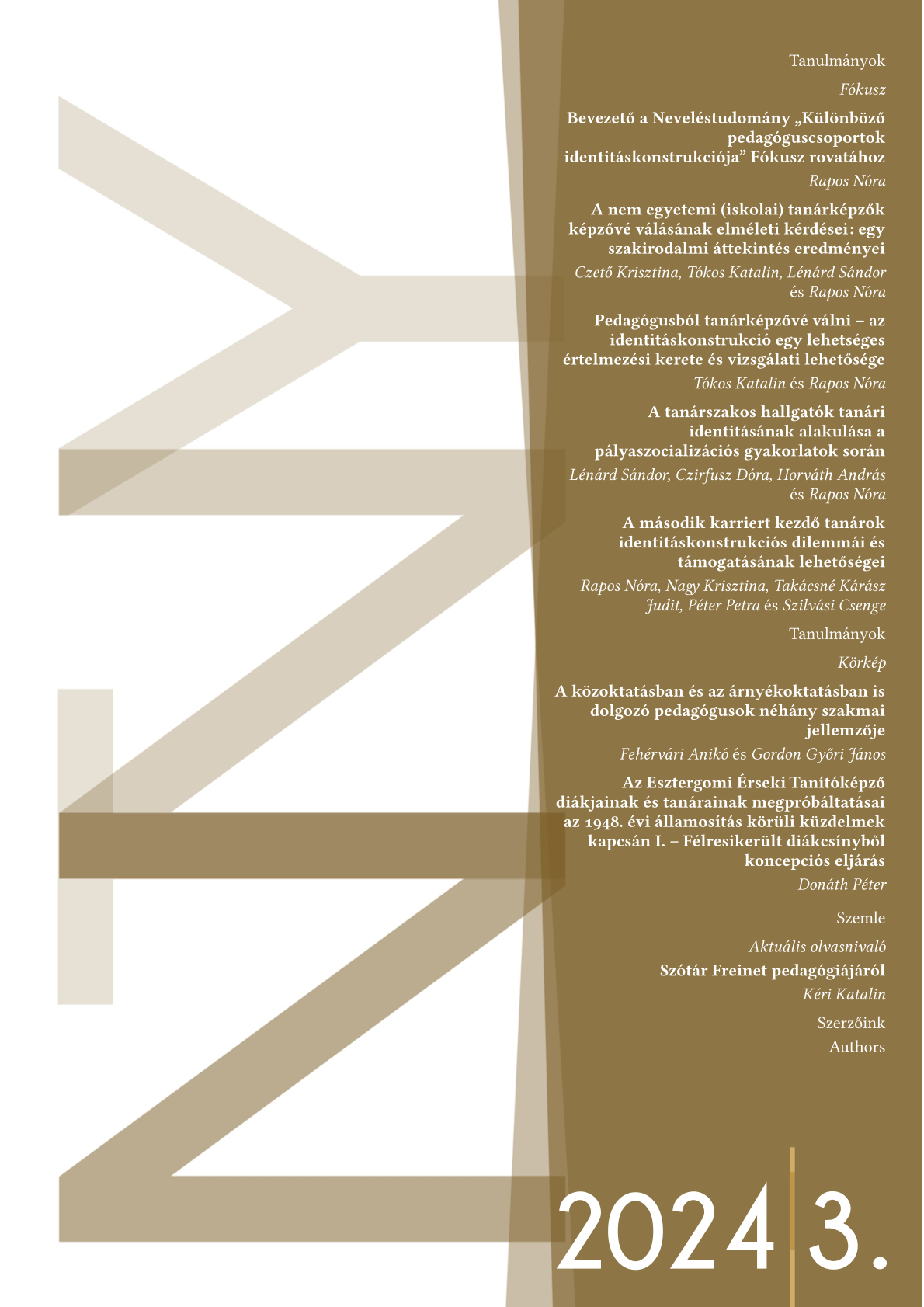Abstract
The shortage of teachers is a serious problem not only in Hungary but also in many countries across Europe, and different regions have developed different solutions. One alternative is supporting adult learners with work experience in other professions to enter teaching. In this critical, exploratory, narrative literature review (N=97), we interpret and analyse second-career teachers' professional learning and identity construction (SCT) and the personal factors determining them to identify typical tensions in this complex, dynamic process. These tensions, which support or hinder identity formation, will be analysed based on Kaplan and Garner's (2017) Dynamic Systems Model of Role Identity. These are Self-Prepositions and Definitions, Perceived Action Possibilities, Purposes & Goals, Ontological and Epistemological Beliefs. Among other things, we find that teacher-focused thinking about teaching can often be a source of tension for SCTs, and that strong internal commitment and confrontation with the real world of teaching often become a source of tension. Preventing attrition of SCTs justifies identifying the optimal characteristics of training and the learning environment. According to the literature analysed, these are planning based on an understanding of the specificities of the student, flexibility, and a conscious approach to the specificities of adult learning.

